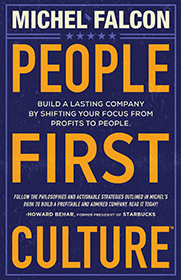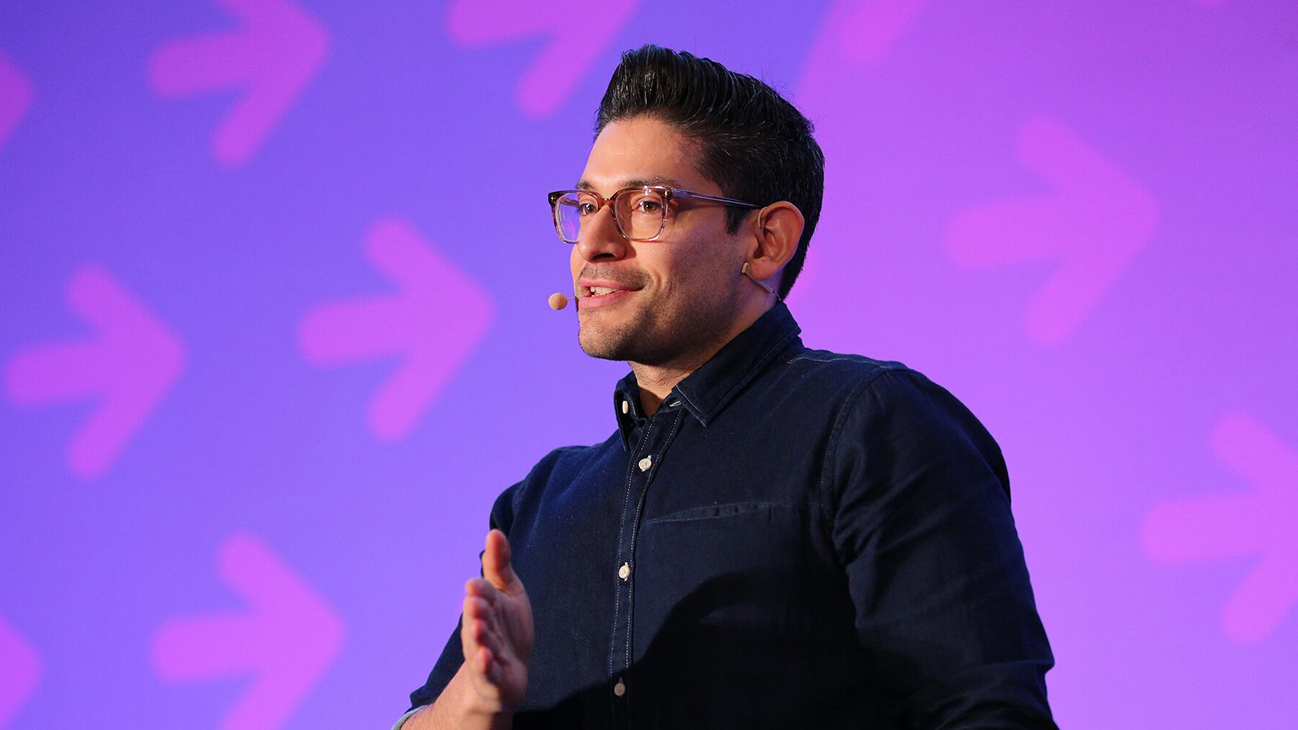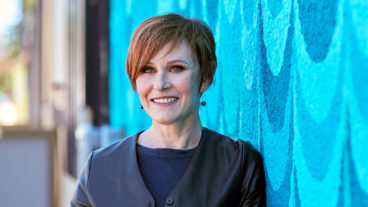It’s not easy to break into the culinary scene, but Michel Falcon’s Brasa Peruvian Kitchen has been making waves since it first opened its doors in 2021. It’s beloved not only for its delicious, Peruvian-inspired menu, but also for Michel’s people-first culture philosophy that fuels its success and growth across its four locations in Toronto and New York.
Michel is no stranger to entrepreneurship. Prior to Brasa, he ran his own consulting business, where he worked with companies across industries to enhance their people management and customer experience strategies, before he co-owned and operated a portfolio of restaurants and venues in Toronto.
Through applying his people-first culture lens, Michel helped these venues grow to earn tens of millions of dollars in profitable revenue with 200+ employees — all within two years. Now at Brasa, Michel is putting his philosophy to the test again.
Adopting a People-First Culture Philosophy

When Michel first took on the challenge of opening his fast-casual restaurant concept, his goal was to create a business where he would want to work.
Michel defines a people-first culture philosophy as building a business that is admired by customers, employees, and the community alike. The key factor being that you’re admired by all three equally, he adds.
This is the philosophy that Michel shared with his leadership team up front. Too often, he says, leaders put too much attention and focus on their most valuable customer, exhausting a lot of resources and energy to serve this one group.
When this happens, it limits a company’s ROI and long-term growth. It may bring short term gain, but you’ll lose in the long run whether by diminishing reputation or profit, Michel says.
A people-first culture philosophy prioritizes all three groups equally to maximize ROI, because by serving each group, Michel says, it ensures that:
- Customers will keep coming back — they’ll want to do business with you.
- Employees will become your advocates, talking you up to their family, friends, and community, growing your business and community in return.
- People will want you operating in their communities. Take Starbucks as an example, Michel says, when they were in their high growth period, developers wanted them at the bottom of their buildings and communities wanted them in their neighborhoods. By serving your community, you become a valued local business.
Implementing a People-First Culture Philosophy
To implement a people-first culture philosophy into the DNA of his company, Michel focused on embedded his 3P strategy into his day-to-day operations — Purpose, Process, and then Profit.
The 3P strategy, Michel says, allows an organization to become admired, beat their competitors, and grow a successful organization, regardless of their industry. Below, Michel outlines his 3P strategy:
Purpose
When running a business, the most important thing to understand, Michel says, is why you’re running this business. What is the purpose of your company? In other words, why do you come to work every day?
Secondly, focus that question on your customers. What is the purpose of your customers? What is the definition of their success — why are they coming to you?
Then, apply that question to your employees. What is the purpose of your employees as human beings, not as workers or staff. Every one of your direct reports will have a different definition of success — maybe some want to rise up within the company, while other are there to pay their college tuition.
Benevolent or servant leaders, Michel says, must understand the purpose and needs of all of their direct reports so they can better lead their team.
Process
These are the operational processes leaders build to enrich the lives of their customers, employees, and communities. Michel’s rule of thumb is that he likes to see three operational improvement processes built every single quarter. That way, he says, we are constantly refining the business and evolving it before the expectations of our customers, employees, and communities change. This helps protect businesses from any type of disruption, Michel says.
Profit
Last, but certainly not least, Michel says, is profit. He self-describes himself as a very profit-driven leader, as all entrepreneurs should be, but he differs in how he seeks to earn profit. Michel views profit as a reward of his people-first culture efforts and initiatives. Profit follows people.
Hear more from Michel on the 3P strategy in the video below:
People-First Culture Philosophy in Action
As a keynote speaker, Michel shares his proven 3P strategy, which he has and continues to implement in his businesses as a restaurateur and hospitality entrepreneur.
Just recently, Michel initiated a pay transparency policy at Brasa Peruvian Kitchen. This has been an important goal for Michel since his company’s launch and in 2023, he was in a position to achieve it.
In a company blog, Michel wrote:
The industry that I operate my business in isn’t recognized for putting people-first… My industry typically experiences 100% year over year turnover, exploits minimum wage workers to maximize profits, and offers few growth opportunities. There’s a more equitable path to be taken.
When we launched our first location in 2021… I knew I wanted to create systems and processes to put our people first like the industry had never seen before…
I’m happy to share that our company is showcasing transparency with fine details with respect to a topic that is taboo in most organizations. We’re going one step further than sharing pay bands for roles within the company.
Michel created and shared a document with his team that detailed each employee’s salary — from frontline to head office, new team members to the CEO — along with insight into their responsibilities and company journey. Michel wants to break the stigma around openly discussing pay scales as he believes wage transparency is beneficial to his team members.
“If we’re going to call ourselves transparent organizations, we can’t leave one thing out that impacts the livelihoods of our team members — that’s pay,” Michel told Global News.
Before releasing the document, Michel spoke to his team to confirm their comfort with this pay transparency initiative, with all agreeing that it’s the right thing to do.
The 3P strategy helps organizations differentiate themselves in today’s highly competitive business landscape. Drawing on his first-hand experience as a successful entrepreneur and leader, Michel helps organizations adopt and foster a people-first culture in their organizations.
Contact us to learn more about Michel and how he helps audiences leverage his signature philosophies to build exceptional company cultures that yield exceptional results.




